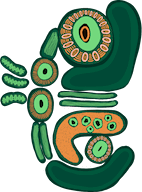
ADHD and children’s oral health
Most of us know attention deficit hyperactivity disorder by its common abbreviation – ADHD. This is a medical condition affecting one in every 20 children. Those that are impacted by ADHD can find dental appointments and day to day care challenging.
Common dental issues for children with ADHD
Children with ADHD can be especially prone to a range of dental issues:
- Children with ADHD commonly experience anxiety, particularly in situations they don’t understand and can’t control. Dental visits, by their nature, require people to lie back with their mouth open and for a child with ADHD, this can be a particular challenge.
- An increased risk of cavities. This is because of the difficulties in maintaining regular brushing and flossing routines.[1] Another reason is because of medication leading to changes in diet and appetite. Some medications cause a dry mouth (xerostomia), which also increases the risk of cavities.
- A higher risk of tooth grinding (bruxism) and dental trauma.
- A higher risk of diseased, missing, or filled teeth.[2]
Top tips for caring for your child’s teeth if they have ADHD
- Develop a regular oral health routine starting from a very young age. It also helps to role model positive oral hygiene habits with your own oral care e.g., brushing twice each day and flossing daily.
- Use positive reinforcement and rewards for better results with brushing.
- Keep your instructions very simple when teaching your child about oral hygiene. Be prepared to repeat yourself several times.
- Focus on the brushing of their teeth, rather than the brushing technique. Some children with ADHD struggle at first with having the brush in their mouth and take time to build tolerance.
- Be patient and try a combination of hygiene techniques to work out what’s best for your child.[3]
- When booking your child’s appointment, let the receptionist know they have ADHD. Ask if there is a dentist in the practice who is experienced in working with children with this condition.
- Schedule appointments for a time when your child is most attentive and least likely to be tired.
- Make regular appointments so they become part of your overall health care for your child.
- Let the dentist know if there are any changes to your child’s care or management. Medications can cause side effects in the amount of saliva which is produced and it’s important the dentist is aware.
Work in partnership with your child’s dentist
You are the expert when it comes to knowing your child and their dentist is an expert in their oral health. As partners, you can reduce the likelihood of dental problems.
Book your regular appointment with your dentist today to discuss your child’s oral health care.
[1] https://www.adhdsupportaustralia.com.au/adhd-and-dental-care/
[2] https://pubmed.ncbi.nlm.nih.gov/14684974/
[3] https://www.adhdsupportaustralia.com.au/adhd-and-dental-care/
